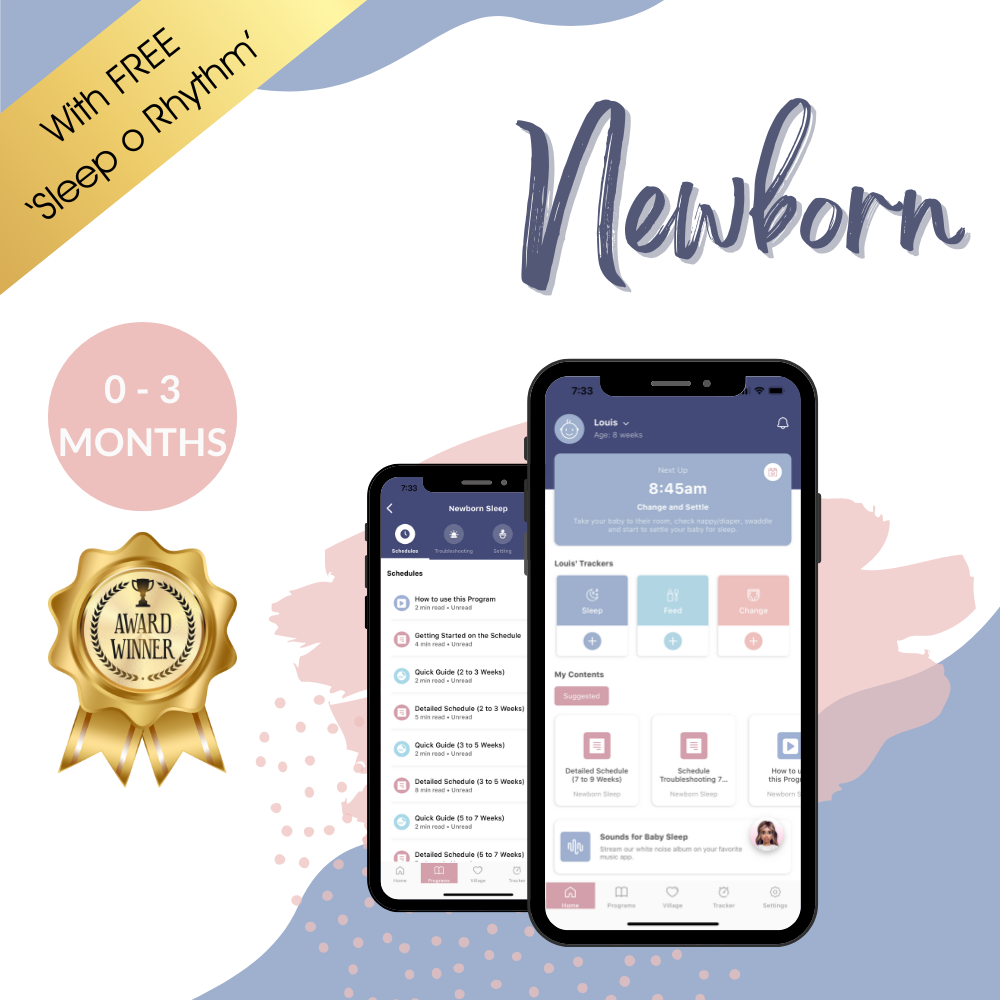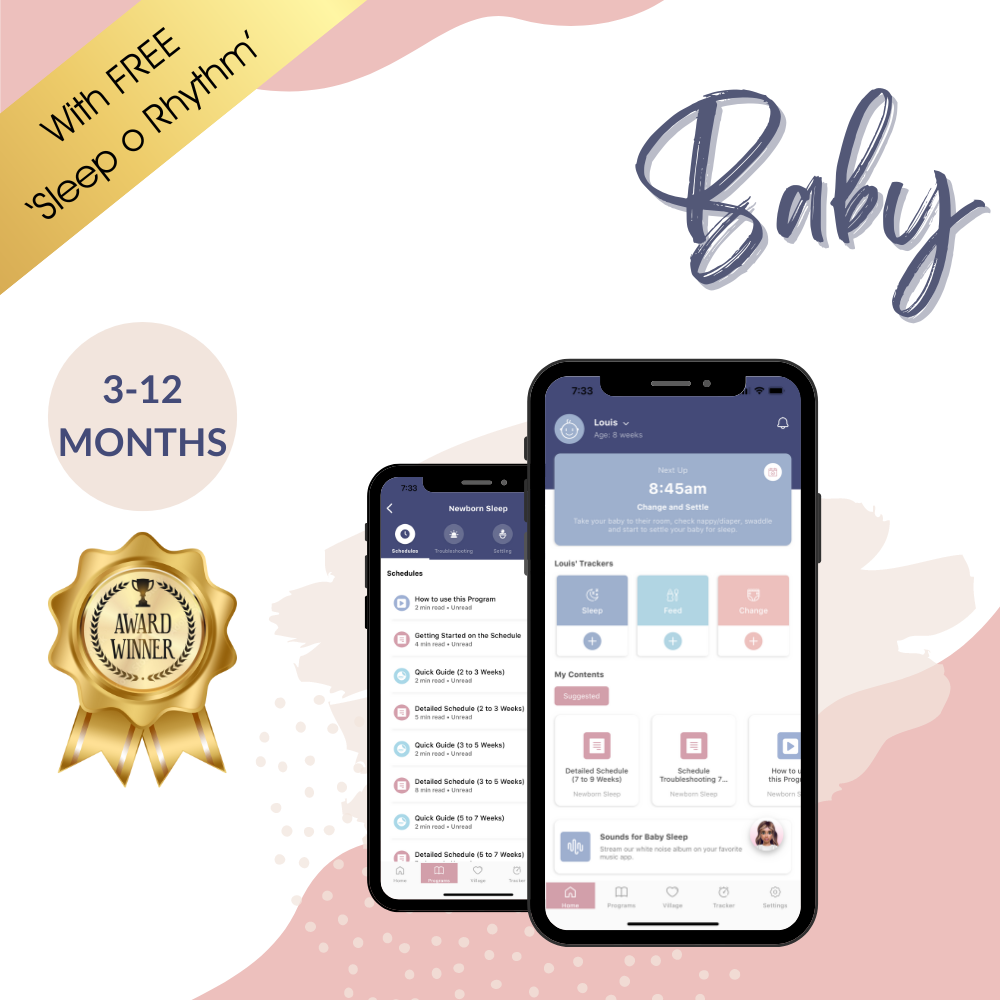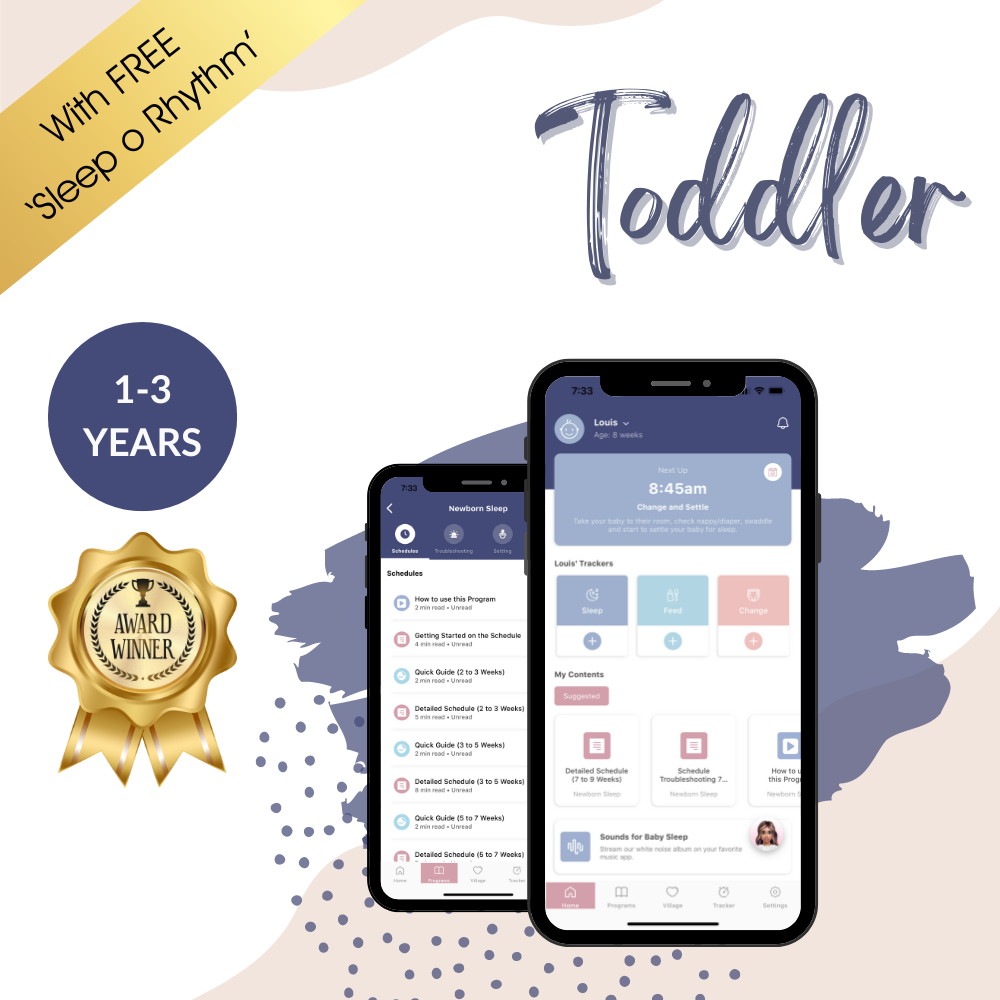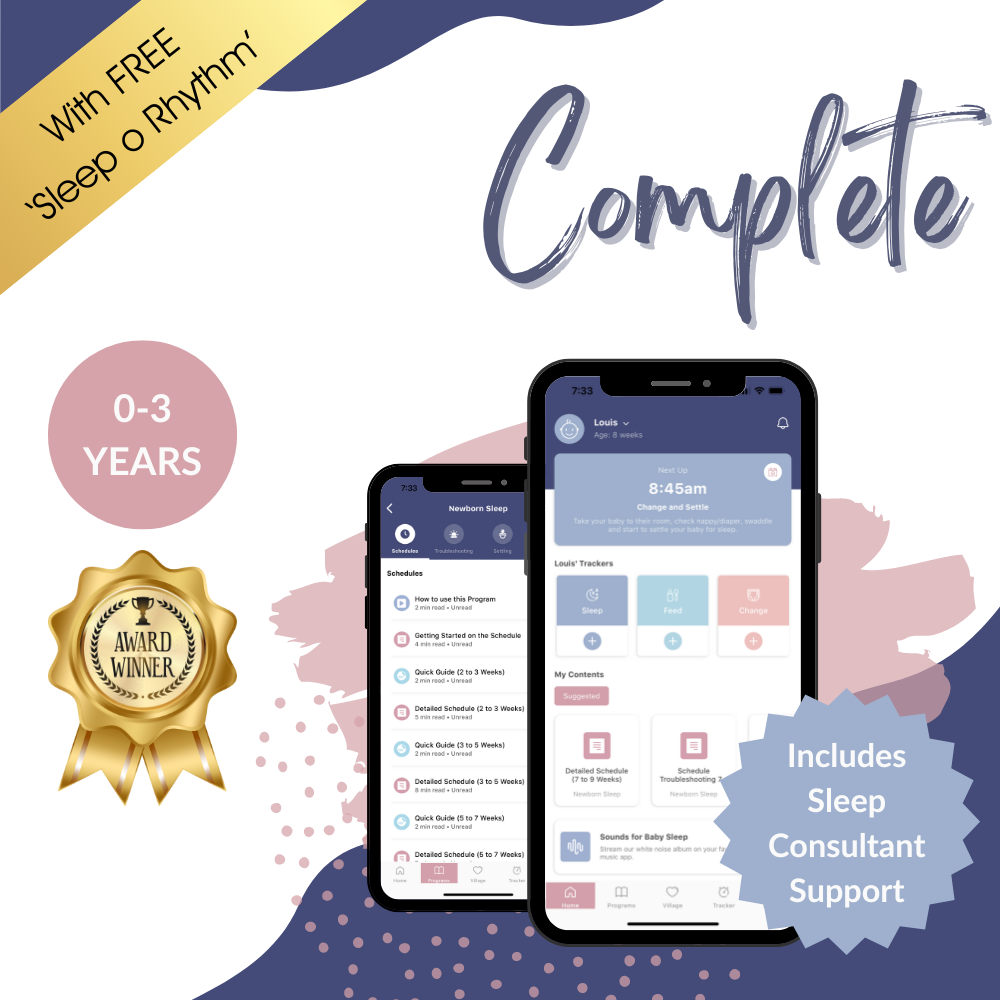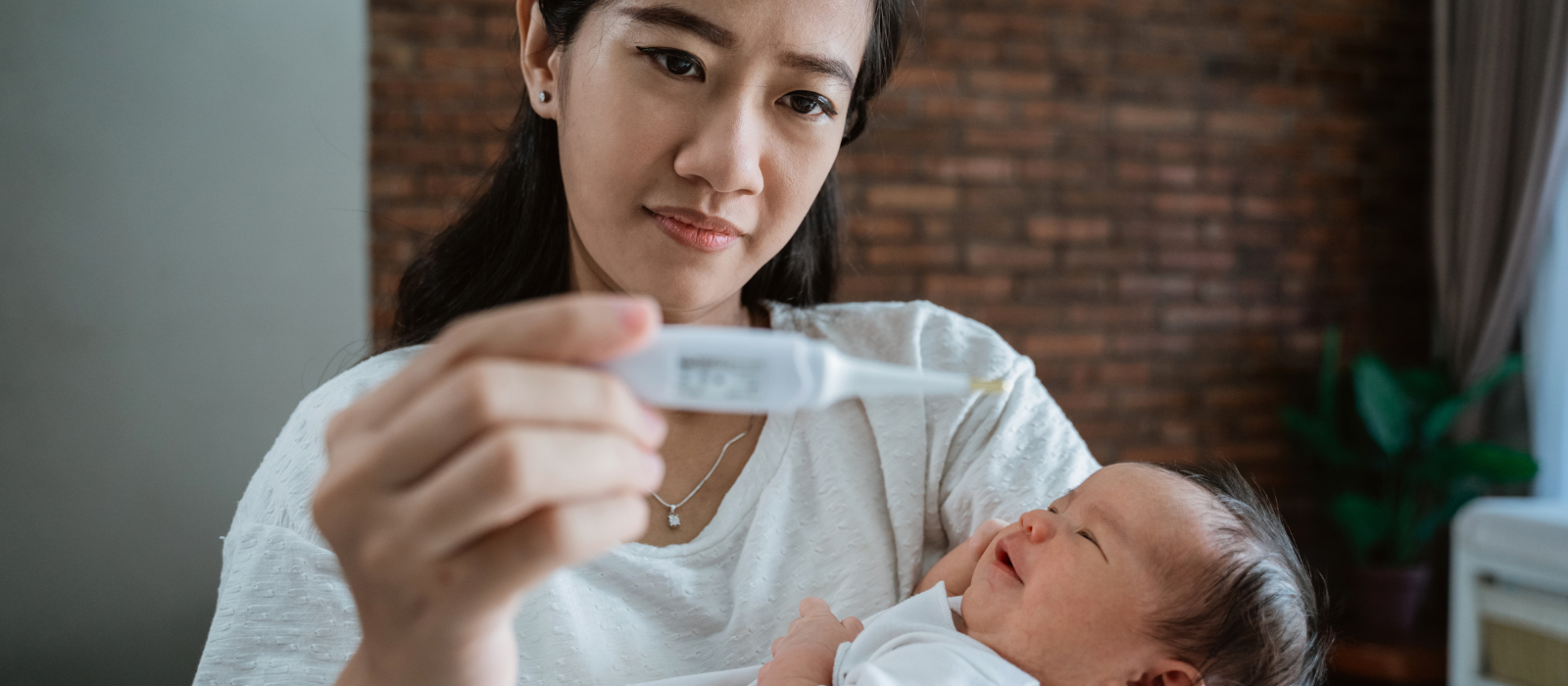
What to do when your baby is sick
It’s awful when your baby is sick, but it’s even worse when they are sick and not sleeping!
When we sleep, our immune system is strengthened and our body has a chance to repair and heal. So if your baby is unwell, they need sleep more than ever. This doesn’t mean it comes easy though!
When your baby is sick, this can have a huge impact on their settling, sleep, feeding and behaviour. And it can be difficult to know how to help your little one during this time.
In this article:
- How to tell if your baby is sick
- Do babies sleep more when they are sick?
- How to get a sick baby to sleep
- Do babies eat less when they are sick?
- Other things that can help a sick baby
- When to call a doctor
- Getting back on track once your baby is well
Feeling confused about your baby's sleep needs?
Let our sleep experts help you every step of the way. Together we can solve your little one's sleep challenges
Get our Sleep Programs
How to tell if your baby is sick
Sudden change in sleep
One of the earliest signs that your baby is unwell can be a sudden change in their sleep.
This can include things like:
- Waking early from naps - usually between 10-30 minutes when they should be in a deep sleep. If you’re confident that their awake times are spot on for their age and you know they have fed well before their nap, then it could be a sign of illness, especially if they are crying or screaming when they wake.
- Waking more overnight. Babies who are sick usually wake more frequently in the first few hours after bedtime or in the early hours of the morning. Sometimes they can wake all through the night though, or they may just have one prolonged wake during the night.
- No longer able to self-settle. If your little one is experiencing pain or discomfort, this can make it really hard for them to self-settle. Your baby may suddenly want you to feed, cuddle or rock them to sleep, or to stay in the room with them while they go to sleep.
Sudden change in feeding
All babies will go through periods of fussy feeding from time to time but the following can also be signs that your baby is unwell:
- Refusing milk feeds
- Having smaller milk feeds, more frequently throughout the day
- Repeatedly coming off the breast/bottle (often due to nasal congestion and difficulty breathing)
- For older babies and toddlers, refusing solids or not eating as much as usual
Physical symptoms
Most illnesses will present with physical symptoms, but these can take a few days to appear. Your baby or toddler may experience:
- Fever
- Rash
- Cough
- Nasal congestion/runny nose
- Sore throat
- Headache
- Vomiting
- Diarrhoea
This is by no means an exhaustive list so if you notice anything out of the ordinary with your little one, it’s worth mentioning this to their doctor or health nurse.
Sudden change in behaviour
A sudden change in your baby or toddler’s behaviour is a big red flag! If they are suddenly really cranky and irritable, clingy or crying a lot, this can be a sign that they are unwell.
However, babies do often show these changes in behaviour when they are going through developmental leaps too. So if a change in behaviour is the only change you are seeing and your baby is otherwise sleeping and eating well, their new behaviour is probably developmental and will pass in a week or two.
If your baby is showing other signs of being unwell though, like those mentioned above, their behaviour may be due to the fact that they are sick. If you’re not sure whether your baby is sick or teething, check out THIS article.
When your baby is in a consistent routine, it makes it much easier to see when something is amiss - including when they are sick! Our Little Ones App has age-appropriate daily sleep and feed schedules, as well as personalised support available, to help you and your little one towards more settled and predictable days.
Do babies sleep more when they are sick?
Some babies will want, and need, to sleep more when they are sick. This is especially true for babies who have a fever or who are very unwell.
Sleep gives your baby’s body time to heal and fight off infection. So if your little one is more sleepy than usual, this suggests that their body needs more time to rest and recover. It is totally fine to let your baby sleep more when they are unwell, provided they are still settling and sleeping relatively well overnight.
Not all babies who are sick will want or need extra sleep during the day though. If your little one has a bit of a sniffle but is otherwise content, it may actually be better to stick to their normal nap routine. Letting them sleep for longer than they need during the day, can cause them to be hard to settle at bedtime or wake more overnight - and that’s not going to help them get well again!
How do you tell if your baby needs more sleep?
- Keep a close eye on your baby during their awake time. If they are getting tired and cranky before their usual nap time, pop them into bed earlier. Let them sleep through to their usual wake time, then get them up and do the same at their next nap if needed. Waking your baby from their naps helps to keep things on track for bedtime, and also ensures your baby isn’t sleeping the whole day away!
- If your baby is still settling and sleeping well overnight, this suggests that they genuinely need the extra sleep during the day. As their health improves, you can gradually lengthen their awake times to get back to their normal nap routine.
- If your baby is hard to settle at bedtime, waking more overnight or early in the morning, this can be a sign that they are having too much day sleep. In this case, you might actually be better off sticking to your baby’s normal nap routine.
How to get a sick baby to sleep
Settling and Self-settling
How you settle your sick baby to sleep very much depends on how they were getting to sleep BEFORE they got sick.
If your baby is used to you patting/feeding/rocking/cuddling them to sleep, then keep doing what you’re doing. Now is not the time to try to change how they go to sleep!
If you have recently started teaching your baby to self-settle, but they are not quite there yet, hold off and go back to settling your baby all the way to sleep. A baby who is unwell is going to have a very hard time self-settling, particularly if this is a new skill for them. Wait until they are back to full health, then you can start working on self-settling again if you choose.
Say goodbye to sleepless nights.
Join over 800,000 families worldwide who are enjoying excellent sleep with our Sleep Programs, created by experts in the field of pediatric sleep.
Get our Sleep Programs
If your baby has been self-settling for a while before getting sick, it’s a good idea to keep giving them the opportunity to self-settle to sleep at the start of their naps and bedtime. If they are only mildly unwell, you may find that they don’t actually need your help to get to sleep.
However, most babies who are unwell will need a bit of a helping hand! You can help your baby get to sleep by patting, rocking or cuddling them until they are drowsy, then giving them a chance to do the last bit of falling asleep on their own. Older babies and toddlers might want you to stay in the room with them while they fall asleep and that’s okay too.
Try not to stress too much about HOW your little one gets to sleep when they are sick - the most important thing right now is that they ARE sleeping! If any new, unwanted sleep associations do creep in while they are unwell, I promise it’s not the end of the world. Once they are back to full health, you can gradually start to reduce your input and guide them back towards independent sleep again.
If you need some help with this, our Little Ones App has several, gentle settling methods to choose from and our sleep consultants are available day and night to support you every step of the way.
Staying asleep
It’s one thing to get your sick baby to sleep, it’s quite another to get them to stay asleep! Unfortunately, most babies who are unwell will wake more during their naps and/or night sleep. Keeping in mind that your little one needs sleep in order to get well again, it’s fine to do whatever works to resettle them when they wake. So if that means feeding, rocking or cuddling to sleep - go for it!
If your baby has nasal congestion or an ear infection, this can make it quite uncomfortable for them to sleep lying flat in their cot. So if your little one is waking early from their naps and you’re having hard time resettling them in their cot, you might want to consider doing some naps upright in a carrier instead, or out and about in the car or pram.
As hard as it can be when your baby is sick and not sleeping well, it’s important that you try to avoid unsafe sleep practices like letting your baby sleep in a swing/bouncer/rocker or falling asleep with them lying on your chest.
It’s fine to let your baby nap on you during the day but you need to be awake and alert the whole time. If you are feeling tired yourself (and let’s face it, you probably are!) the safest place for your little one to sleep is in their cot.
Do babies eat less when they are sick?
Your baby’s feeding can definitely be impacted when they are unwell. You may find that they aren't drinking as much milk, or they may refuse some feeds altogether.
When your baby is unwell though, it is important to make sure they are having plenty of liquids, as they can get dehydrated very quickly. Here's how you can do this:
- If your baby is only having small feeds, offer them more frequently throughout the day. If you are breastfeeding, you may want to switch to feeding your baby on demand while they are unwell.
- Between 6-12 months old, you can offer your baby additional water throughout the day but breastmilk or formula should still be the priority. Using breast milk or formula to thin out purees or cereals, or giving your baby breastmilk popsicles, are other ways to increase their milk intake throughout the day.
- Some toddlers can benefit from electrolyte drinks or popsicles, but talk to your doctor or pharmacist first to see whether this is appropriate for your little one.
If your baby is over 6 months and eating solids, you may find that they aren’t eating as much at meal times, or they may start to refuse their solid meals altogether. Try to offer foods that you know they enjoy and if they are energy-dense foods, that’s even better!
Let's get your little one's sleep sorted ASAP!Our award-winning Sleep Programs will solve your baby's sleep challenges in no time.
Get our Sleep Programs
If your baby is not drinking as much milk or eating as much food as usual, it’s reasonable to expect that they will wake for some extra milk feeds overnight. If you are unsure whether your baby is waking hungry during the night, play it safe and offer a feed to resettle them. If they are feeding through the night and still having a good breakfast milk feed, it suggests that they do genuinely need the extra feeds overnight for the time being.
If they lose interest in their breakfast milk feed, this is a sign that they don’t need quite so much milk overnight. It can be easy to fall into a reverse cycling pattern when your baby is unwell, where they are feeding lots overnight and then refusing feeds the next day. We have some tips for how to break this cycle in THIS article.
Other things that can help a sick baby
There are other things you can do to help your baby feel more comfortable, which may then help them to sleep and feed better too…
- Give your baby pain relief medication as directed by your doctor or pharmacist
- Use a humidifier in your baby’s room during naps and overnight sleep. This adds moisture to the room which can make it easier for them to breathe, especially if they are congested or have a cough.
- If your baby is congested, ask your doctor or pharmacist about using a saline nasal spray and/or a nasal aspirator (also known as a “snot sucker”!). This can help them to breathe easier during their feeds and sleep.
- Give your baby a warm bath. A bath is not only relaxing and comforting, it can help to ease muscle aches and pains, and the steam from the bath can help with coughs and congestion too (test the bath with your elbow first to make sure it’s not too hot for your baby!)
When to call the doctor:
If you’re not sure whether you should get your baby checked out by a doctor, trust your instincts. You know your baby best and there is no harm chatting to your little one’s doctor or health nurse if you feel like something is not quite right with them.
The following websites contain more information about when to seek medical attention for your baby or toddler:
Mayo Clinic - Sick baby? When to seek medical attention
National Health Service (NHS) - Is your baby or toddler seriously ill?
Raising Children Network - Serious child illnesses
Getting back on track once your baby is well
While your baby was sick, their normal routine may have gone out the window or some new, unwanted sleep habits may have crept in. Many parents worry that their baby’s sleep will never get back to normal, or that their hard work has all come undone. But if you follow these steps, your baby’s sleep will be back to normal in no time!
- Start by re-establishing your baby’s normal sleep and feeding routine. Some babies will naturally fall back into their regular routine but most will need a helping hand. You can either jump straight into their regular routine (keeping in mind they might be a bit more unsettled for the first few days) or tweak their awake times and naps by 10-15 minutes every few days to give them a bit more time to adjust.
- If new, unwanted sleep habits have developed while your baby was unwell, like rocking/cuddling/feeding to sleep, you can gently guide them back towards self-settling again by gradually reducing your input at naps and bedtime. So instead of settling your baby all the way to sleep, try just settling them until they are drowsy and let them do the last bit of falling asleep on their own.
- If you have an older baby or toddler who is now expecting you to stay in the room with them while they go to sleep, you can use a similar approach where you gradually move further and further away, until you are out of the room. Take it nice and slow and use your voice to soothe them if they get upset.
If you need more help getting your baby’s routine or settling back on track, our sleep consultants would love to help. They are available to chat to day or night in our Little Ones App.
Caring for a sick baby can be exhausting, so make sure you’re looking after yourself as well. Ask family or friends for help if you need a break and don’t forget to wash your hands frequently - the last thing you want is to get sick too!
Further reading
From the National Health Service (NHS):
Coughs, colds and ear infections
From Raising Children Network:


